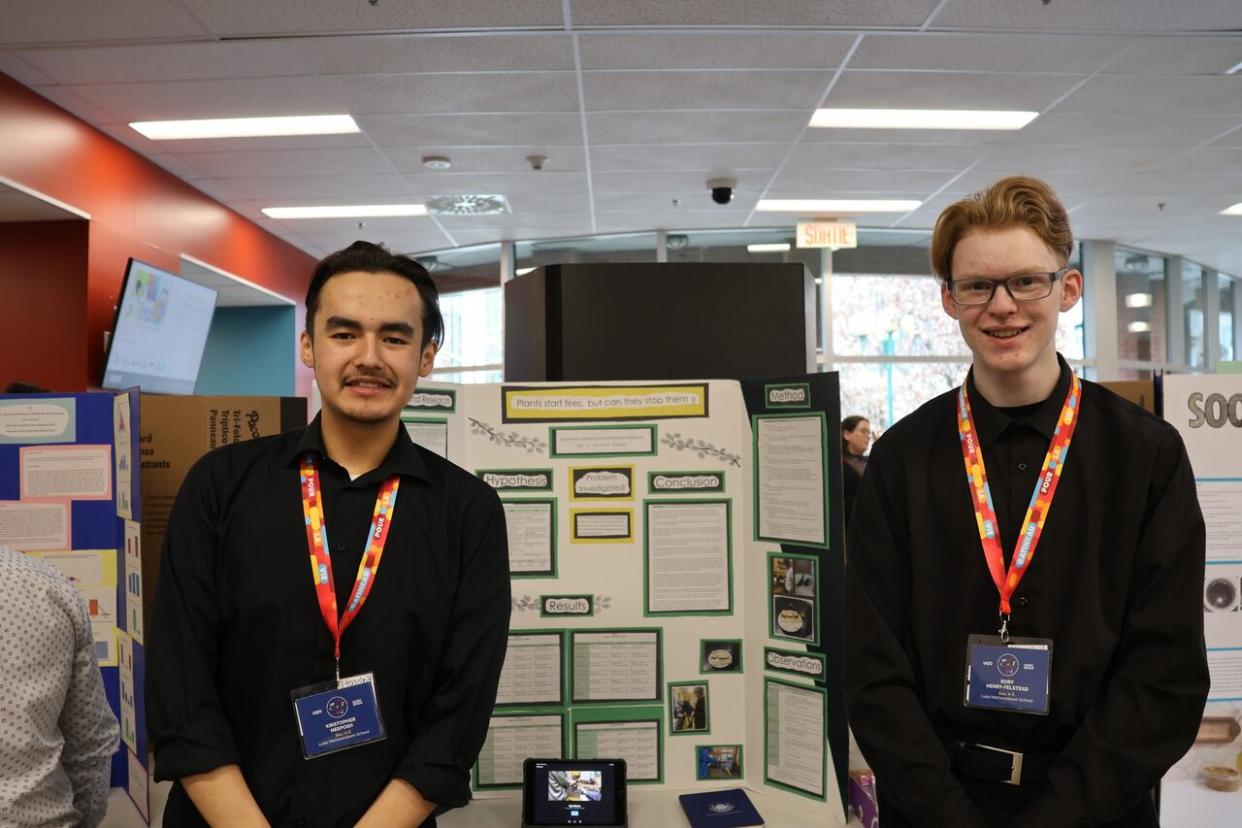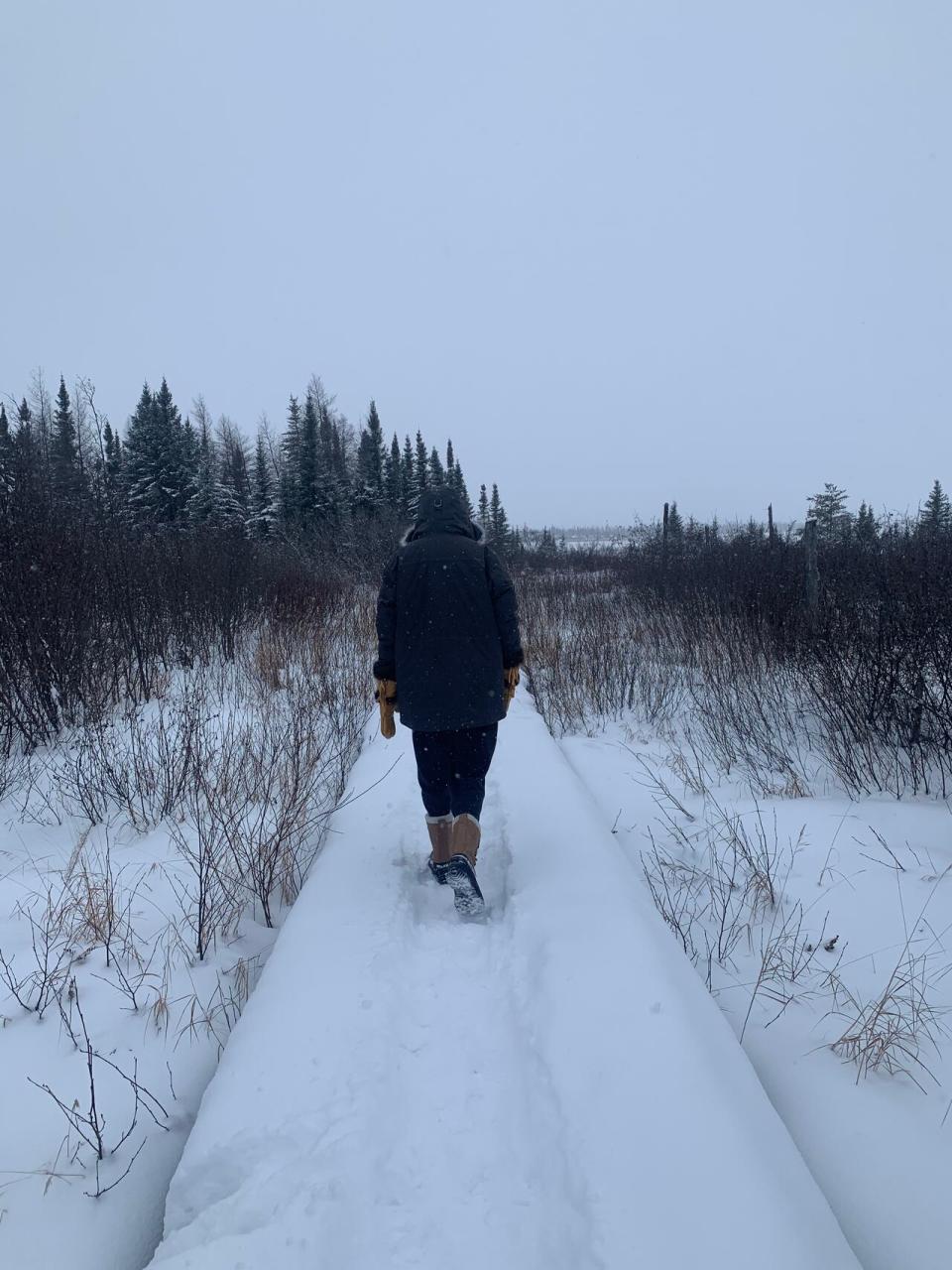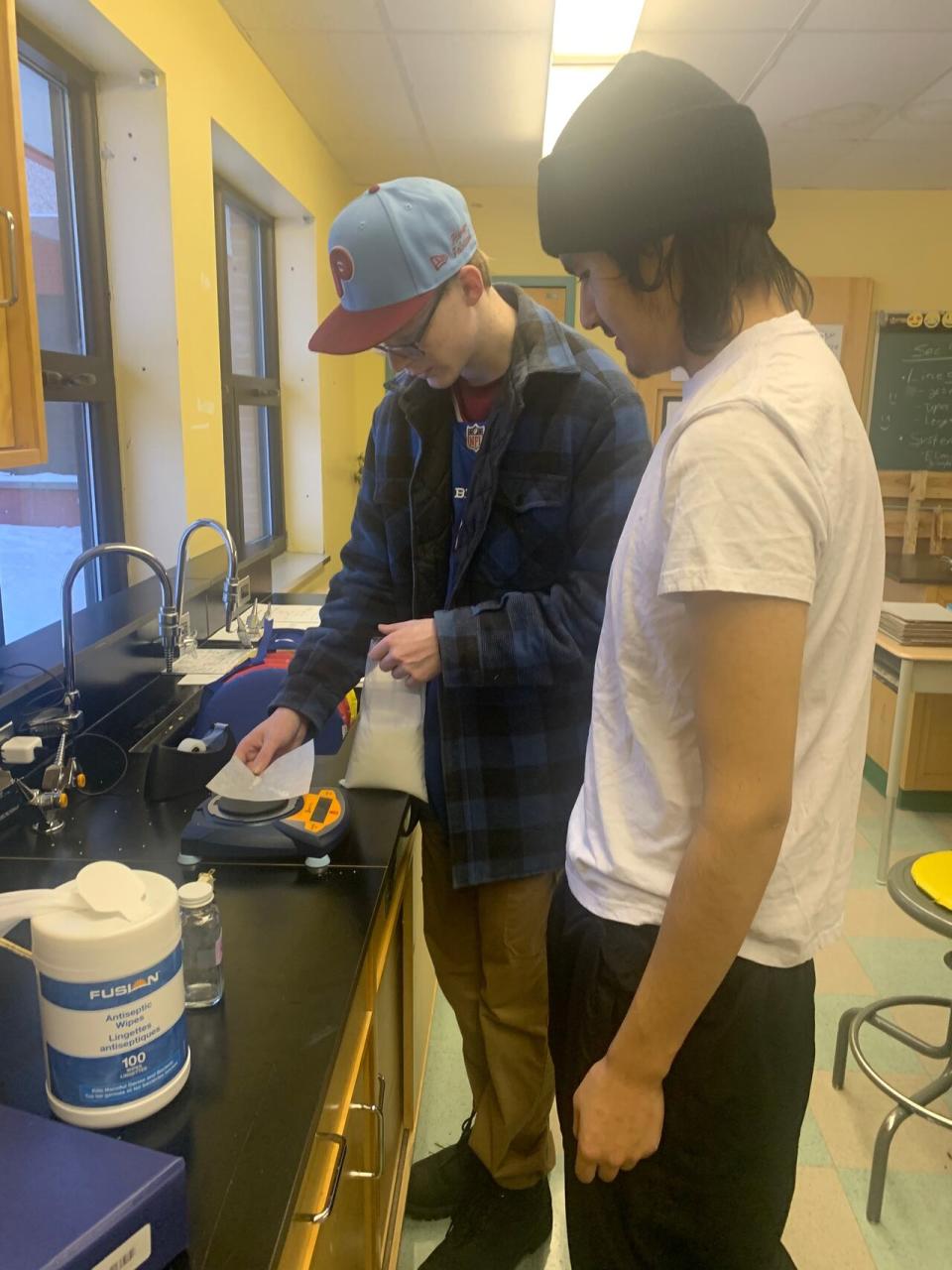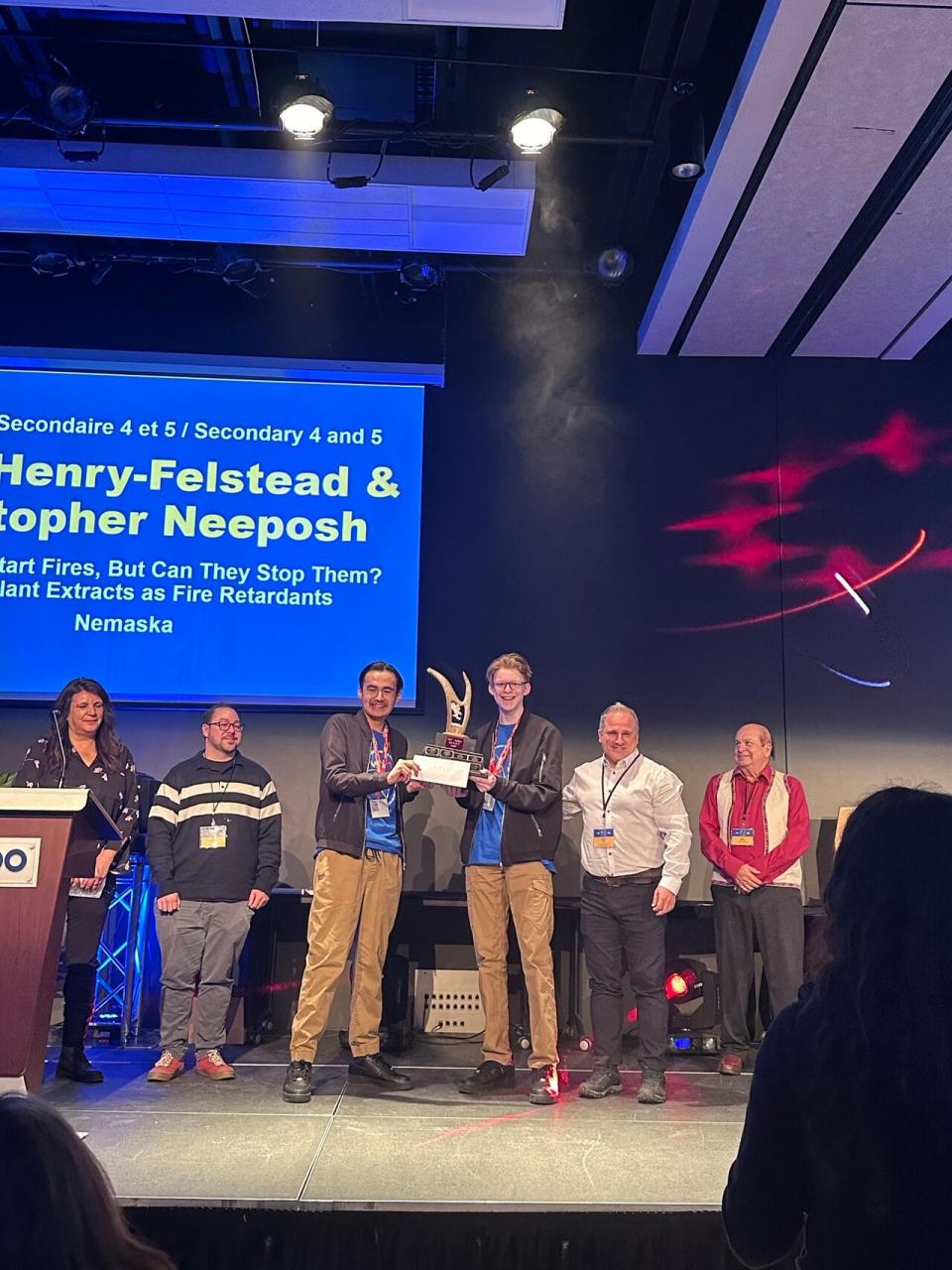Cree students' project on natural fire retardants in boreal forest wins at science fair

Two students from a small northern Cree community recently won first place at the 2024 Quebec Indigenous Science Fair in Gatineau, Que.
Kristopher Neeposh and Rory Henry-Felstead from Nemaska, Que., titled their project "Plants can start fires, but can they stop them?" It explores the idea that some boreal extracts derived from Eeyou Istchee may be natural fire retardants that could slow the spread of forest fires.
"We started this project first because of the forest fires last year in our communities, and we want to find a more natural and biochemical way to stop it," said 16-year-old Neeposh.
Neeposh and Henry-Felstead studied and experimented with trees and shrubs commonly found across Eeyou Istchee, such as jack pine, Labrador tea, black spruce and white spruce.
Their research included reading articles, interviewing Cree knowledge keepers, and experimenting with extracts derived from boreal plants they harvested from the land around them.

Henry-Felstead walking along the Nemaska boardwalk, harvesting material to use in the experiments. (submitted by Shannan Henry)
"We interviewed different elders, and found out exactly what our modern science would tell us. The elders said that the pine cones actually release the seeds during forest fires," said Henry-Felstead, who is from Venosta, Que., and has been a student in Nemaska for nine years.
"Our traditional ways should not be left behind with modern technology — we can actually put it together," said Neeposh.
Their most significant finding was that jack pine extract, applied to different materials, seemed to slow the spread of flames. They found that it even out-performed ammonium sulfate, a commercially available fire retardant.
This wasn't their first time at the Quebec Indigenous Science Fair. Last year, they won second place. This year's win proved to them that they are only getting better.

Neeposh and Henry-Felstead in the lab. The pair created extracts from trees and shrubs found in the boreal forest and then tested their flame-retarding qualities. (Shannon Henry)
Despite their first-place finish, the two will not advance to the Canada-Wide Science Fair in Ottawa later this spring.
Henry-Felstead says they had to get creative in their research methods, by using what was available around them in Nemaska, a community of about 820 people.
"It is a bit harder up here because our lab isn't as equipped as some schools would be down south or in the bigger cities," he said.
Henry-Felstead's mother, Shannon Henry, echoed that. She chaperoned their trip to Gatineau.
"When we bring our students to provincials, you can definitely see the student projects that have more creativity labs, STEM workshops and may have access to a variety of equipment that we just don't," said Henry, who's also the head of the special education department in Nemaska for the Cree School Board.
"We have a lot of naturally gifted students in Nemaska, but also all across the Cree nation. Without the tools and the access to those tools, I think we're really limiting them," said Henry.
For their project, Neeposh and Henry-Felstead made use of the material they had around them like butane stoves, beakers, a coffee grinder, digital scale and lighter, to name a few.

Neeposh and Henry-Felstead accept their trophy last month in Gatineau. (Shannon Henry)
"If we can open doors to more opportunities and access tools for science, technology, engineering, and math, I think it would be really impressive to see what our students could come up with," said Henry.
Neeposh and Henry-Felstead are aiming to compete again next year at the Quebec Indigenous Science Fair, when they are in secondary five.
Their message to Indigenous youth who want to learn science, technology, engineering and math? Challenge yourself mentally.
"You'll fail sometimes. But if you work hard enough and try it enough times, one day you will succeed in whatever field you choose, whether it be engineering, science, or really anything," said Henry-Felstead.
"Your mind is going to be exhausted, but once that hard work is done, you'll enjoy the reward at the end of it," said Neeposh.

